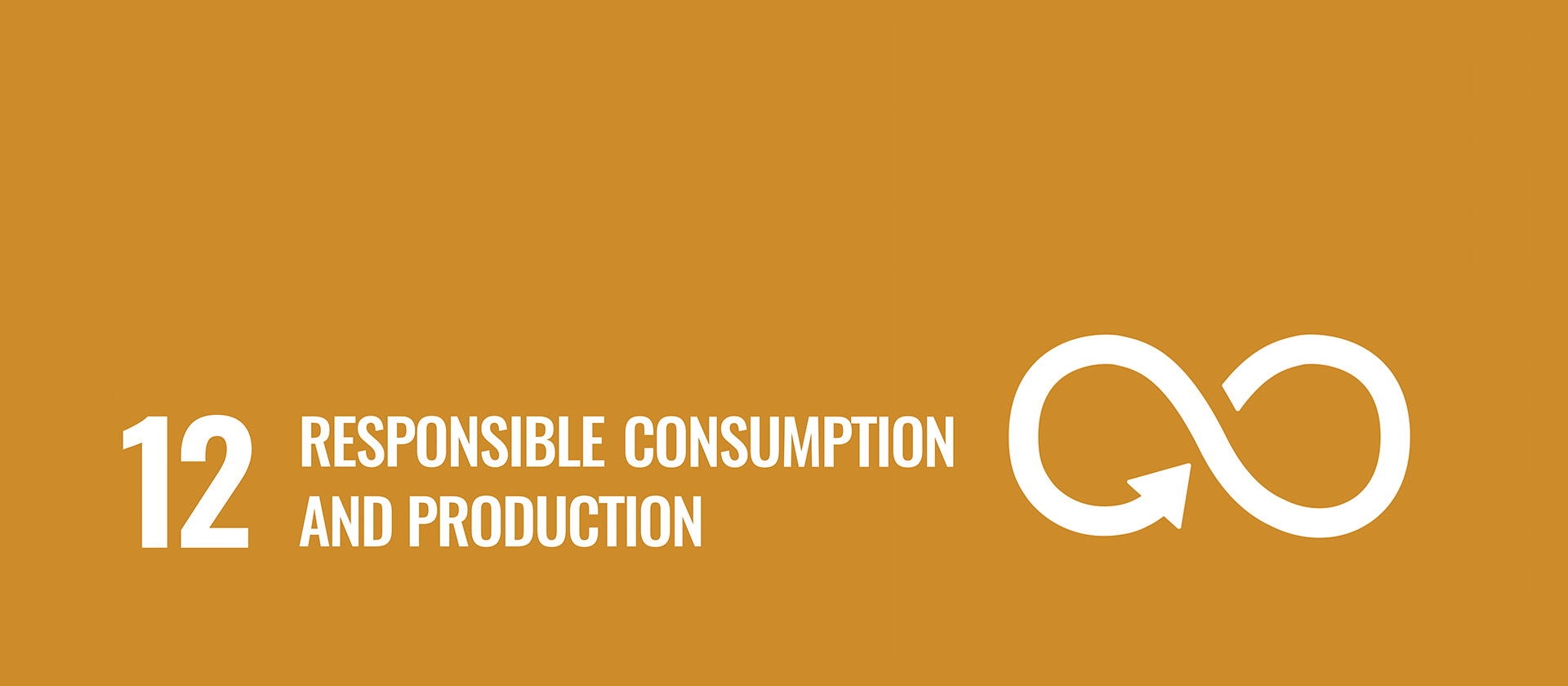In order to be more sustainable, a shift towards using precious resources more sparingly and in the appropriate manner is needed to help to sustain our planet.
Sustainable consumption and production changes could bring about a reduction in the number of people living in poverty. Globally, responsible consumption and production changes in practice are needed, this would include minimising food waste, conserving energy and producing lower-carbon emissions creating cleaner and greener cities, countries and nations, worldwide.
find out more about Goal 12: Responsible consumption and production.
Teaching and learning
University of Liverpool students are able to explore this topic from a number of different perspectives within course modules. Examples of course modules that have a direct or indirect focus on Responsible Consumption and Production (as assessed by students) include:
- Grand challenges in biology (LIFE105)
- Consumer behaviour (ULMS795)
- Managing knowledge for innovation (ULMS352)
- Environmental Sustainability (ENVS218)
We recognise that there is much more to do to equip students with the knowledge and skills that they need to make a contribution to achieving this global goal. Working with the Guild of Students our undergraduates and postgraduates have the opportunity to audit their curriculum modules for their relevance to SDG12: Responsible consumption and production and to make recommendations for changes to the course content. For more information on how students can get involved see the Guild curriculum audit report.
The University has also established a Responsible Consumption and Production Working Group. This group brings together academics, students and representatives from our Centre for Innovation in Education to develop a strategic plan for embedding SDGs into the curriculum including SDG12.
There are also a number of ways that students can support the aims and objectives of SDG12 through extra-curricula activities, including through volunteering opportunities provided by the Guild of Students.
Research and Knowledge Exchange
The University contributes to the identification of the root problems around Responsible Consumption and Production and the potential solutions across many areas of research. Some key examples are:
- Towards a cleaner and greener city
- Scientists discover a better way to make plastics out of sulfur
- Reducing food waste using cold plasma technology.
Leadership, governance and professional services
Examples of leadership, governance and professional services include:
- Sustainable procurement
- Responsible supply chains
- Ethical investment policy
- Healthy and sustainable food policy
- Food waste session on campus with Compost Works
- AquaFund ADSM scheme which donates 1% of its revenue to WaterAid
- Waste processed by SUEZ Recycling and Recovery who turn waste into new resources
- Broad range of reuse and recycling initiatives across the University, all of which contribute to a circular economy
- The Help get rid of plastics competition asked students how they would get rid of plastics. The submissions were reviewed by Unilever, and four lucky students, Cara Hawkins, Edmund Morris, Jake Barrett-Shaw and Nachilila Kaluba, were shortlisted and invited to pitch their idea to a panel of judges which included a Dragon’s Den-style Q&A session. The finalists all delivered exceptional pitches to a very high standard, but in the end Nachilila Kaluba, a third year Computer Science student was crowned the winner. Nachilila’s idea was based around the psychology of changing Unilever’s consumer behaviour, as well as their attitude towards the global plastic issue crisis. This included creating an educational platform focused on plastic in schools, upcycling and creating an international customer community website. This website had an integrated loyalty system and considered the demographic differences between the countries of Unilever’s customers. The judging panel commented: “We picked Nachi’s pitch because she understood the consumer problem and really thought about how to change people’s behaviour when it comes to plastic and recycling. Her website solution with ‘how-to’ reuse is very creative and has a global application, which we really appreciate”.
Back to: Sustainability
